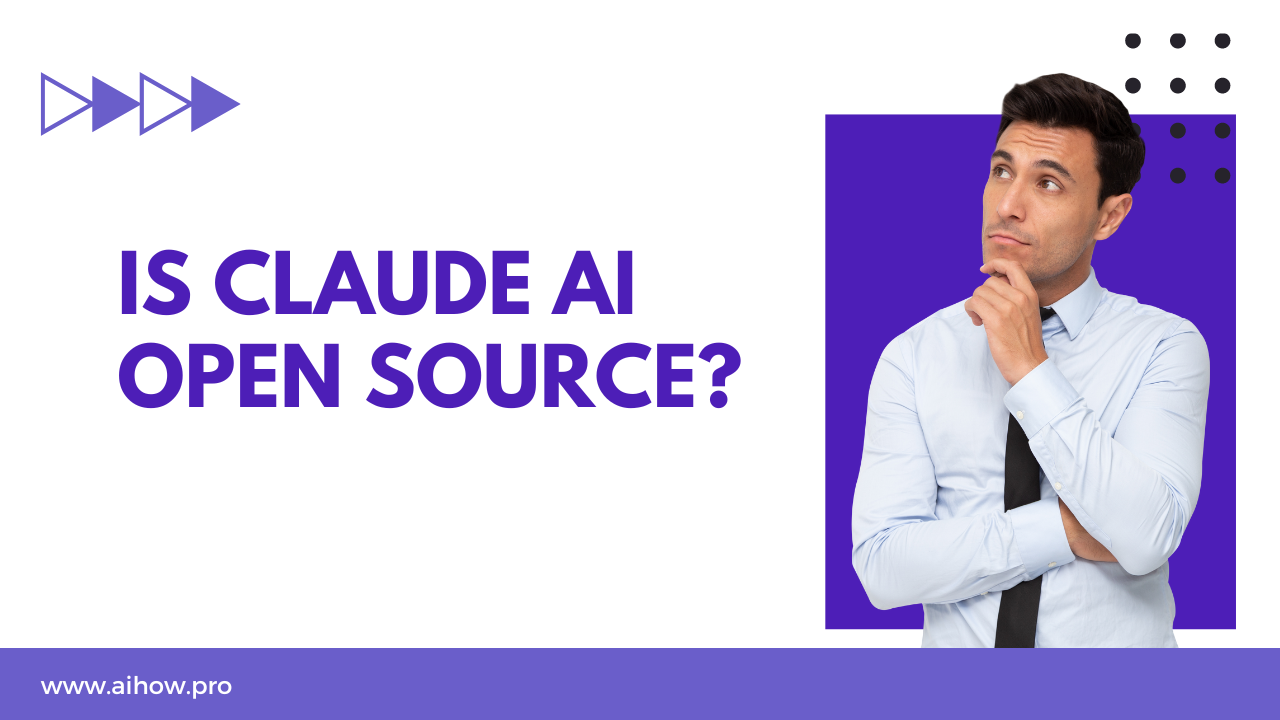As a professional in the industry, I often come across various technologies that shape the landscape of artificial intelligence (AI). One question that frequently arises is whether Claude AI is open source. In this blog post, I delve into this inquiry, providing insights into the openness of Claude AI and its implications for developers, businesses, and the wider AI community.
What is Claude AI?
Claude AI represents a groundbreaking leap in AI technology, developed to understand and generate human-like text based on the inputs it receives.
What sets Claude AI apart is its ability to grasp the nuances of language, context, and even emotions, making interactions with it incredibly natural and intuitive. The essence of Claude AI lies in its sophisticated algorithms and neural networks, which have been meticulously trained on vast datasets to emulate human thought processes.
Read more: Who Owns Claude AI?
The Open Source Revolution
The concept of open-source AI plays a pivotal role in the democratization of technology. Open source refers to the practice of making the source code of software available to the public, allowing anyone to view, modify, and distribute the code.
This open approach fosters a collaborative environment where developers and researchers from around the globe can contribute to the advancement of AI technologies.
Defining Open Source AI
Open source AI refers to AI projects where the source code is freely available for anyone to use, modify, and distribute. Unlike proprietary AI solutions, which are often confined to certain entities, open-source AI promotes transparency, flexibility, and inclusivity.
It empowers developers, researchers, and businesses to leverage AI technologies without the constraints of licensing agreements or vendor lock-ins.
Benefits of Open Sourcing AI
- Accessibility: Open-source AI eliminates barriers to entry, enabling a wider pool of individuals and organizations to participate in AI development and deployment. This accessibility fosters diversity of perspectives and accelerates innovation.
- Community Collaboration: By opening up the source code, developers can collaborate across geographical boundaries, sharing insights, best practices, and enhancements. This collective intelligence drives continuous improvement and evolution of AI technologies.
- Cost Efficiency: Leveraging open-source AI can significantly reduce development costs, as organizations can tap into existing frameworks and libraries rather than starting from scratch. Moreover, the shared development model helps distribute costs across the community.
- Customization and Flexibility: Open-source AI allows for greater customization and adaptability to specific use cases and requirements. Developers have the freedom to tailor algorithms, models, and applications to suit diverse needs, leading to more effective and scalable solutions.
- Transparency and Trust: With open-source AI, the inner workings of algorithms and models are transparent and auditable. This transparency fosters trust among users and stakeholders, particularly in critical applications such as healthcare, finance, and governance.
- Security and Robustness: The collaborative nature of open-source AI promotes rigorous testing, peer review, and bug fixes, enhancing the security and robustness of AI systems. Vulnerabilities can be identified and addressed promptly, reducing the risk of exploitation or malfunction.
Beyond the Code: The Impact of Open Source AI
The implications of open-sourcing AI extend far beyond the technical realm. By democratizing access to cutting-edge AI technologies, we are leveling the playing field, and empowering small businesses, and individual developers to leverage AI’s potential. This could lead to a surge in creative applications, innovative solutions, and entrepreneurial ventures that could shape the future in unforeseen ways.
Ethical Considerations and Community Engagement
As we embrace open-source AI, ethical considerations take center stage. The open nature of these technologies necessitates a responsible approach to development and deployment, ensuring that AI is used for the greater good. Moreover, community engagement becomes crucial in shaping the direction of AI development, ensuring that it aligns with societal values and needs.
The Future Powered by Open Source AI
Looking ahead, the trajectory of open-source AI holds promising prospects for technology and society. As more organizations and individuals contribute to the open-source ecosystem, we can expect a surge in innovative applications, from healthcare to education, that could revolutionize how we live and work.
Conclusion
In wrapping up, exploring Claude AI and open-source AI has been eye-opening. It’s clear that by joining this open community, we can all benefit. From developers to businesses, the doors to AI are wide open. Embracing open-source AI means more innovation, better solutions, and a fairer playing field for everyone. So, let’s dive in together and shape the future of AI for the better.
FAQs
Is Claude free to use?
Claude is not entirely free; it operates on a usage-based pricing model. Specific costs depend on the chosen plan and model usage.
Is Claude 2 open source?
Neither Claude 2 nor the latest model Claude 3 are open source. These iterations of the Claude AI framework are proprietary, meaning their source code is not freely accessible for modification or distribution.
Is ChatGPT open source?
No, ChatGPT is not open source. It is a proprietary AI model developed by OpenAI, which means its source code is not freely available for modification or distribution.
Does Claude Have an API?
Yes, Claude has an API. Anthropic’s Claude API allows developers to integrate Claude’s AI capabilities into their applications, with pricing based on usage

